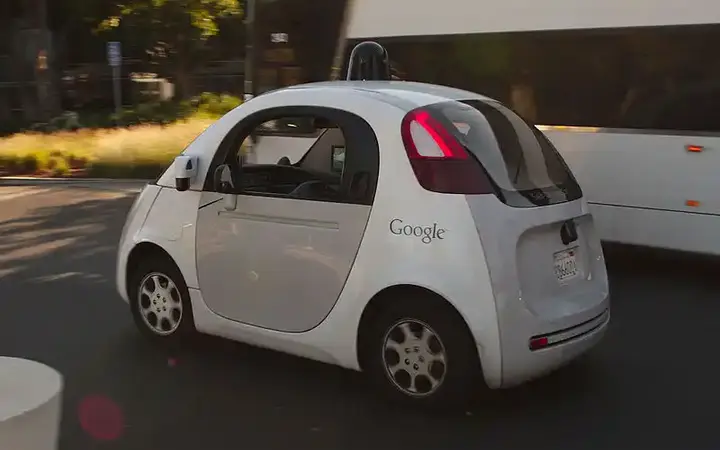Reading useless books: Here's a better way to read
In an age of information overload, the traditional way of acquiring knowledge, i.e., reading books, is often questioned. Although books have been a reliable source of information for centuries, the digital age offers us faster and more efficient ways to learn. This article explores the reasons why reading books is less effective and suggests a better approach to learning.
Show key points
- Traditional book reading is often time-consuming and may not yield efficient knowledge gain in today’s fast-paced world.
- Printed books can contain outdated information due to long publication processes, especially in rapidly evolving industries.
- Reading is a passive activity that limits engagement and retention because it lacks interactivity and feedback mechanisms.
- ADVERTISEMENT
- Books typically do not cater to diverse learning styles or individual differences in reading pace and comprehension.
- A single-author viewpoint in books may hinder exposure to multiple perspectives and limit deeper understanding of complex topics.
- Active learning strategies—like note-taking, summarizing, questioning, and applying knowledge—enhance understanding and retention.
- Modern tools such as e-learning platforms, podcasts, and audiobooks complement traditional reading by offering flexible and personalized learning experiences.
Book reading limits

Time consumption:
Reading a book is a time-consuming activity. It takes a significant investment of time, often for hours or even days. In our fast-paced world, where every minute counts, spending hours or even days reading a book may not be the most effective way to gain knowledge. Moreover, the time you spend reading a book is often disproportionate to the amount of information it holds. This is especially true for dense and complex texts that require a high level of concentration and multiple readings to fully understand them.
Recommend
Outdated information:
The traditional deployment process is long. From the time an author writes down his thoughts to the time the book reaches readers' hands, months, if not years, can pass. Such delays are particularly problematic in rapidly evolving fields, such as technology, science and current affairs. By the time a book is published, the information it contains may not be relevant or accurate.
Passive learning:
Reading is inherently passive activity. The information is presented to the reader but the opportunities to interact with it are limited. The flow of information in one direction can lead to a superficial understanding of the topic and poor information retention. It lacks the feedback mechanism that is essential for effective learning. Without the opportunity to apply knowledge or discuss it with others, the reader may not be able to fully understand or remember the concepts in the long run.
Non-Assignment:
Books are written with a wide audience in mind and do not cater to individual learning styles or steps. Some people may prefer visual aids, others may learn better through hearing aids, and some may need to do something physical to understand this. Books, being primarily text-based, may not meet these diverse educational needs. Moreover, everyone reads at a different pace. The book does not adapt to the reader's pace, which may lead to increased information or, conversely, lack of challenge.
Limited viewpoints:
Writers usually offer one point of view, which is that of the author. This can limit the reader's understanding and interpretation of the subject. It often does not present the diverse perspectives that discussions, debates, or interactive platforms provide.
Better ways to read

Effective Education:
Active learning is a process that involves active participation in educational materials. It's not just about absorbing information; it's about understanding, questioning and applying it. Here's how to incorporate active learning into your reading process:
Material Handle:
Instead of reading the book passively, engage in the material. This may include taking notes, summarizing what you've read, or even teaching the material to someone else. These activities require you to process information on a deeper level.
Interrogation:
Do not only accept the information provided to you. Ask about him. Why did the author make some arguments? Do you agree with them or disagree with them? What evidence supports these arguments? This critical approach can help you understand the material on a deeper level and form your own opinions.
Try to link the new information to what you already know. This may include making connections with your own experiences, other books you've read, or broader world events. Making these links can help you understand the material in a broader context.
Discussion:
Discuss the material with others. This may include joining a book club, participating in online forums, or simply discussing the book with friends or family. A discussion allows you to hear different perspectives, which can deepen your understanding of the material.
Application of knowledge:
Try to apply the knowledge you gained from reading. This may include using information in your work or study, applying it to real-world situations, or using it to make informed decisions. Applying knowledge not only reinforces what you have learned, but also makes the learning process more important and practical.
Thinking:
After you've finished the book, take time to reflect on what you've learned. What are the main meals? How did the book change your understanding of the subject? Thinking about these questions can help reinforce your learning and make sure you remember key points.
Use of modern tools

E-Platforms:
The emergence of online learning platforms has revolutionized education. These platforms provide a wide range of resources that cater to different learning styles and steps. Interactive courses, video lectures, quizzes, and discussion forums promote active learning and make learning more accessible and personalized.
Podcasts and audiobooks:
Podcasts and audiobooks are excellent alternatives for those who find traditional reading boring. They allow you to learn on the go, and take advantage of time that may be wasted. The auditory nature of these media can also enhance the understanding and retention of information.

While books have played a crucial role in the dissemination of knowledge for centuries, it is important to adapt to the changing times. By embracing active learning and leveraging modern tools, we can make learning more efficient, effective and fun. So, the next time you pick up a book, remember to actively handle the material. It's not just about reading; it's about understanding, questioning and applying. Happy learning!
![]()
Why do people buy? Simplifying the theory of purchase
Understanding why people buy is key in commerce—whether it's to meet basic needs, fulfill desires, or express identity. Buying behavior is shaped by psychological, social, economic, and marketing factors, and recognizing these helps create better marketing strategies that truly connect with consumers. more- ADVERTISEMENT
![]()
Getting to rock bottom: what it means and where to go from here
Hitting Rock Bottom: What It Means and Where to Go from Here more- ADVERTISEMENT
![]()
Bermuda Triangle Puzzle
The Bermuda Triangle remains a thrilling mystery filled with tales of vanishing ships, eerie time loss, and ghostly weather. Despite scientific theories and advanced research, the true cause of these disappearances continues to puzzle and intrigue the world. more- ADVERTISEMENT
![]()
Alert from the Northern Lights: Sun's activity is at its highest level in 23 years with the Northern Lights
July 2024 saw a surge in sunspots—the most since 2001—boosting chances of stunning Northern Lights shows across North America. A G2 geomagnetic storm is expected this week, possibly lighting up skies as far south as New York and Idaho. Keep an eye out for those glowing waves! more- ADVERTISEMENT
![]()
The Power of Nature: Learn about the forces behind a living volcano
Living volcanoes are powerful natural wonders—windows into Earth’s fiery depths. They dazzle with beauty, yet threaten with eruptions. From shaping landscapes to offering geothermal energy, they reveal nature’s immense force. By studying their behavior, we can better predict their eruptions and harness their energy for a safer, sustainable future. more- ADVERTISEMENT
![]()
My strategies for developing business confidence
Asking for a raise taught me a powerful lesson: confidence and self-advocacy matter. Despite battling impostor syndrome and anxiety, I learned to challenge my inner critic, celebrate my wins, and take risks. That one bold step led to growth, success, and a stronger belief in myself ever since. more- ADVERTISEMENT
![]()
Smart glasses help the sighted! A terrible scientific achievement!
AI-powered smart glasses are changing lives for the blind, offering independence through features like text reading, object and face recognition, navigation, and real-time translation. Though challenges like cost and privacy remain, users report life-changing benefits, and ongoing development promises even more possibilities for accessibility and inclusion. more- ADVERTISEMENT
![]()
Self-driving cars - a dream or a reality to be realized?
Self-driving cars - a dream or a reality to be realized? more- ADVERTISEMENT
![]()
The epic story of the Valley of the Kings in Luxor
Hidden under Egypt's desert sands, the Valley of the Kings holds grand tombs built to protect pharaohs like Tutankhamun and Seti I. Rich in secrets and treasure, it offers a journey into ancient history, where engineering genius met sacred beliefs in the afterlife. A mesmerizing destination for any explorer. more- ADVERTISEMENT
![]()
What is the primary source of oxygen on Earth?
Cyanobacteria were the first to release oxygen through photosynthesis, sparking a massive rise in atmospheric oxygen that wiped out many anaerobic organisms. Today, tiny ocean microbes like Prochlorococcus are major contributors to Earth's oxygen—even more than trees—though most of the planet's oxygen is locked in solid compounds, not the air. more- ADVERTISEMENT





















